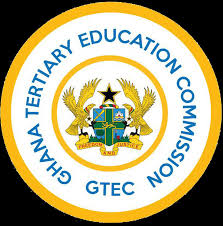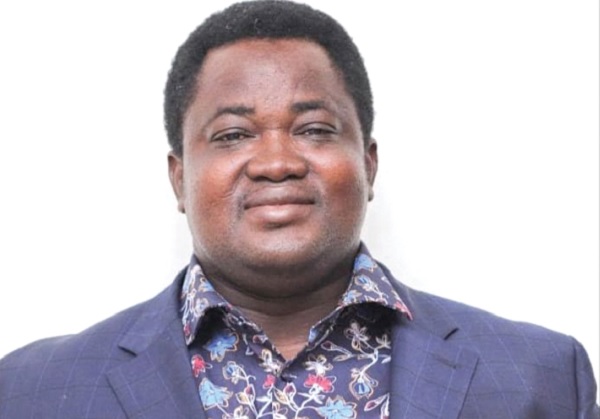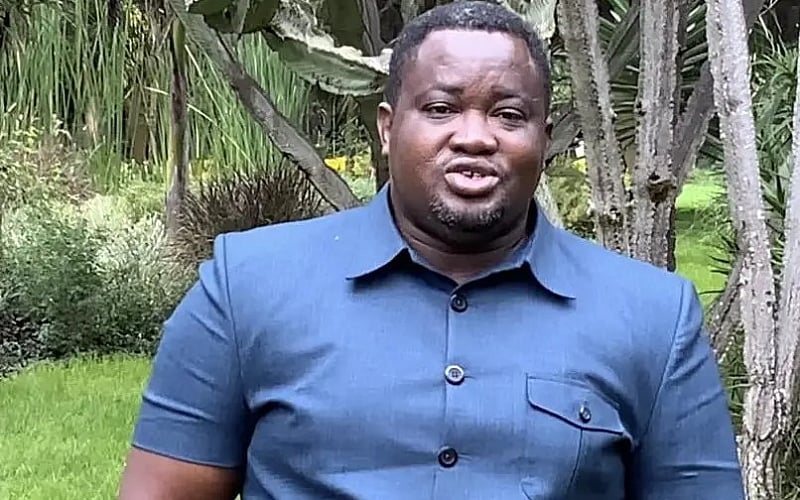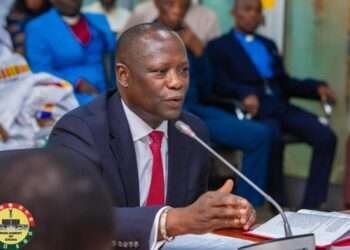Deputy Chief Executive Officer (CEO) of the Environmental Protection Authority (EPA), Prof. Michael Ayamga-Adongo, has strongly criticised the Ghana Tertiary Education Commission (GTEC) over its handling of the ongoing dispute with Deputy Health Minister and Essikadu-Ketan MP, Hon. Dr. Grace Ayensu-Danquah.
According to him, the Commission is targeting the wrong issues by attempting to discredit her foreign professorship rather than focusing on systemic lapses that have compromised Ghana’s academic standards.
Prof. Ayamga-Adongo urged GTEC to desist from portraying Dr. Ayensu-Danquah as if she had intentionally sought to mislead Ghanaians regarding her professional title.
“I don’t think the Deputy Minister wants to beat the system. It is just that she comes from a system that described her as a professor, and she is bringing it here. What is not helping her case is trying to project it as if it is equivalent to what happens here.
“Was she a professor in the United States? Yes. Can she hold herself as a professor, maybe outside? Yes. But not in the university here. These are the intricacies of the issue”
Prof. Michael Ayamga-Adongo, Deputy CEO of EPA
His remarks came after GTEC cautioned Dr. Ayensu-Danquah against holding herself out as a professor in Ghana, following a directive to her office demanding evidence of her appointment by August 11, 2025.

Dr. Ayensu-Danquah’s legal team, led by lawyer David K. Ametefe, rejected the directive, stressing that the Deputy Minister was duly appointed an Assistant Professor of Surgery by the University of Utah in the United States.
They argued that GTEC had no jurisdiction to demand proof of a foreign appointment, which was valid under the authority of the University of Utah and outside Ghana’s academic regulatory framework.
However, GTEC pointed to inconsistencies in the documents submitted. A letter signed by Prof. W. Bradford Rockwell, Vice Chair for Academic Affairs in Utah’s Department of Surgery, indicated that Dr. Ayensu-Danquah was an Adjunct Assistant Professor, not a full Assistant Professor as initially claimed.
The Commission described the omission of “Adjunct” as misleading, noting that within Ghana’s academic system, such a role equates to a part-time lecturer rather than a substantive professorship.
In response, Dr. Ayensu-Danquah’s lawyers accused GTEC of unfairly attacking her professional integrity and gave the Commission a 14-day ultimatum to justify its actions or face legal proceedings. They signalled their readiness to seek certiorari, mandamus, and declaratory relief if necessary.

Fueling Fake Degrees
Beyond the defence of Dr. Ayensu-Danquah, Prof. Ayamga-Adongo went further to accuse GTEC of undermining the very integrity of the academic system it claims to be protecting.
“The reason we have fake and bad degrees in the system is that very poorly equipped institutions end up getting accredited by this same GTEC,” he said, arguing that by accrediting poorly equipped institutions, the Commission has contributed to the proliferation of fake and substandard degrees across the country.
“That is what they should focus on. Their core mandate is to get the government to equip our universities to deliver quality education so that we don’t have certificates without substance”
Prof. Michael Ayamga-Adongo, Deputy CEO of EPA
The Deputy CEO described some of the institutions accredited by GTEC as “sickening,” insisting that the Commission had failed to properly enforce quality standards.
Prof. Ayamga-Adongo maintained that GTEC’s obsession with chasing after individuals’ titles distracts from its central responsibility of safeguarding academic quality in Ghana.
He called for greater attention to addressing the systemic challenges that allow fake qualifications to flourish rather than pursuing what he described as “headmaster-like” policing of individuals. “GTEC is acting like headmasters, not regulators,” he stressed.

The controversy surrounding Dr. Ayensu-Danquah has become one of the most debated academic disputes of 2025, drawing in legal, political, and public interest dimensions.
With the government already navigating reforms in education, the case places further pressure on the government to ensure that the regulatory framework for academia is both fair and credible.
For Prof. Ayamga-Adongo, the matter is a test of institutional focus.
In his view, Ghana’s tertiary education sector will continue to suffer unless GTEC redirects its energy towards strengthening universities and rooting out fraudulent academic practices, instead of dragging public officials into battles over titles.
READ ALSO: Databank Research Tips Cedi for Tougher Times as Dollar Pressures Build




















